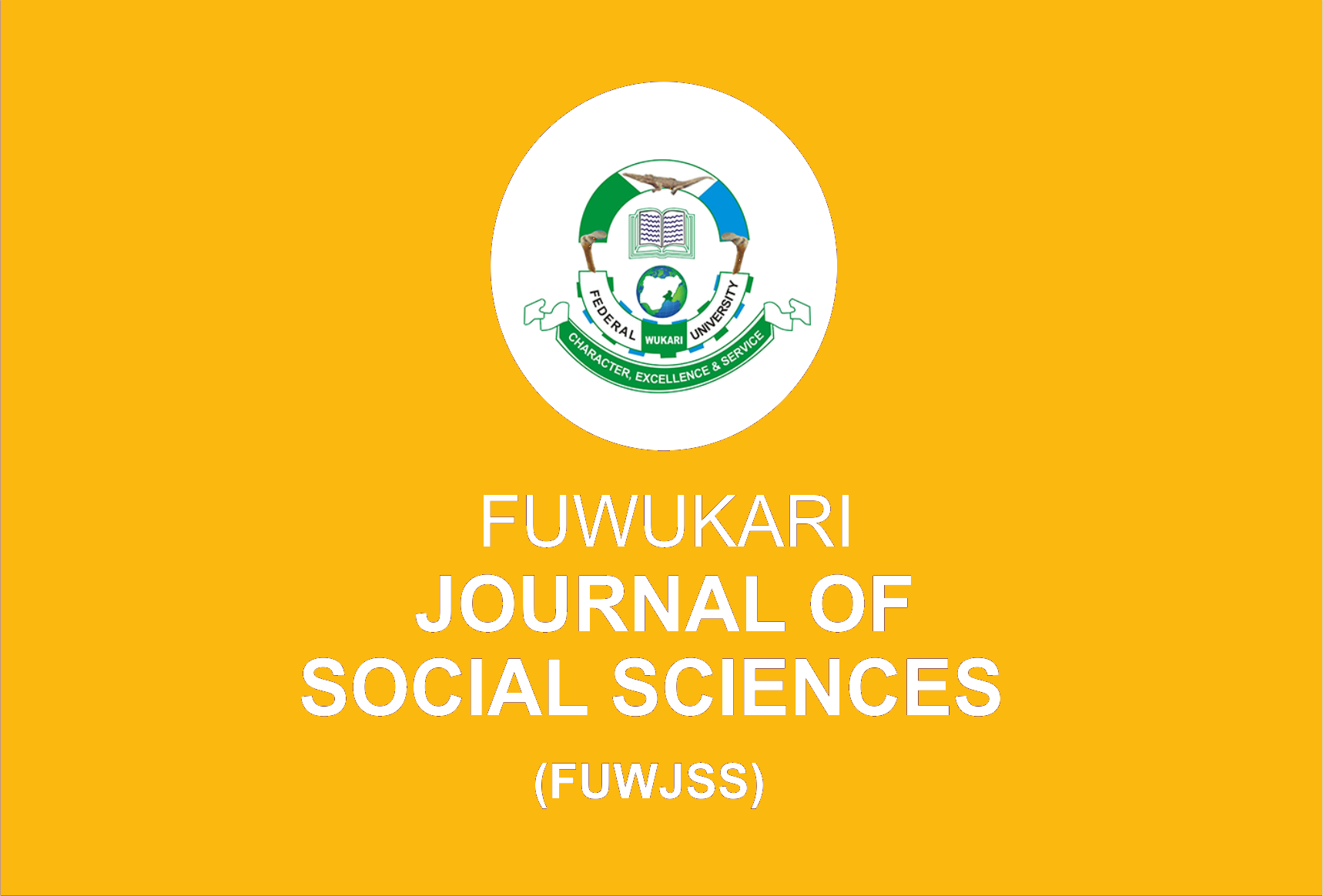Internet Penetration And Cybercrime Attack In Abia State, Nigeria
Ogochukwu Favour Nzeakor, Alu Alfred Ede, Chibuike Ndubuisi Nwoke, Samuel Kalu Obasi
Keywords: Internet, cybercrime attack, online account, ICT gadgets, social media
Abstract
Arguments persist to canvass that a person could be a victim of cybercrime attack if even the person does not have access to the internet. However, prevailing arguments canvassed a correlation between increased internet penetration and increased cybercrime attacks. Thus, this study examines the relationship between internet penetration and cybercrime attacks in Abia State, Nigeria. Data for this study emerged through the administration of questionnaire to 1104 respondents between the ages of 20 years and 70 years in Abia State, Nigeria. The study’s results confirmed that smart phone (61%) and computer (33%) were the most common ICT gadgets owned by respondents. Also, on average, respondents who own smart phone and other gadgets tend to experience more cyberattacks (M = 2.53, S.D = 1.63) than those who own only smart phones (M = 2.17, S.D = 1.41), t(923) = 3.453, p < .05, r = .11. Facebook (24%) and WhatsApp (23%) were the most commonly operated online accounts; followed by email (19%), Instagram (11%), and Internet banking (10.8%). That about 4 in every 5 respondents operated more than one online account. Respondents who operated/owned more than one accounts are more vulnerable to cyber security attacks (M = 2.43) than those operated only one account (M = 2.16) and those who operated no account at all (M = 2. 03), f(923) = 2.889, p = .05, r = .10. The study
Author Biography
Ogochukwu Favour Nzeakor
Peace & Conflict Studies Unit, School of General Studies
Michael Okpara University of Agriculture, Umudike.
Abia State, Nigeria
Alu Alfred Ede
Peace & Conflict Studies Unit, School of General Studies
Michael Okpara University of Agriculture, Umudike. Abia State, Nigeria
Chibuike Ndubuisi Nwoke
Department of Sociology & Anthropology
The Faculty of Social Sciences, University of Nigeria, Nsukka, Nigeria
Samuel Kalu Obasi
Social Science Unit, School of General Studies
University of Nigeria, Nsukka, Nigeria
Corresponding author: [email protected]
Ogochukwu Favour Nzeakor, Alu Alfred Ede, Chibuike Ndubuisi Nwoke, Samuel Kalu Obasi
Keywords: Internet, cybercrime attack, online account, ICT gadgets, social media
Abstract
Arguments persist to canvass that a person could be a victim of cybercrime attack if even the person does not have access to the internet. However, prevailing arguments canvassed a correlation between increased internet penetration and increased cybercrime attacks. Thus, this study examines the relationship between internet penetration and cybercrime attacks in Abia State, Nigeria. Data for this study emerged through the administration of questionnaire to 1104 respondents between the ages of 20 years and 70 years in Abia State, Nigeria. The study’s results confirmed that smart phone (61%) and computer (33%) were the most common ICT gadgets owned by respondents. Also, on average, respondents who own smart phone and other gadgets tend to experience more cyberattacks (M = 2.53, S.D = 1.63) than those who own only smart phones (M = 2.17, S.D = 1.41), t(923) = 3.453, p < .05, r = .11. Facebook (24%) and WhatsApp (23%) were the most commonly operated online accounts; followed by email (19%), Instagram (11%), and Internet banking (10.8%). That about 4 in every 5 respondents operated more than one online account. Respondents who operated/owned more than one accounts are more vulnerable to cyber security attacks (M = 2.43) than those operated only one account (M = 2.16) and those who operated no account at all (M = 2. 03), f(923) = 2.889, p = .05, r = .10. The study
Author Biography
Ogochukwu Favour Nzeakor
Peace & Conflict Studies Unit, School of General Studies
Michael Okpara University of Agriculture, Umudike.
Abia State, Nigeria
Alu Alfred Ede
Peace & Conflict Studies Unit, School of General Studies
Michael Okpara University of Agriculture, Umudike. Abia State, Nigeria
Chibuike Ndubuisi Nwoke
Department of Sociology & Anthropology
The Faculty of Social Sciences, University of Nigeria, Nsukka, Nigeria
Samuel Kalu Obasi
Social Science Unit, School of General Studies
University of Nigeria, Nsukka, Nigeria
Corresponding author: [email protected]

